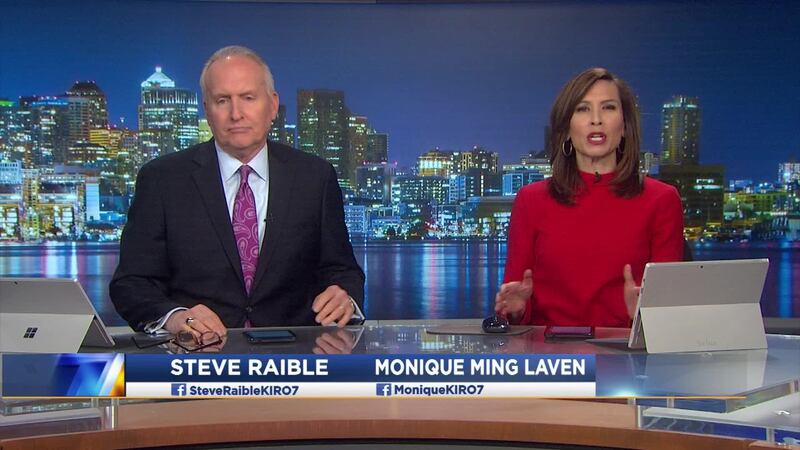OLYMPIA, Wash. — The Washington State Legislature is considering banning philosophical or personal exemptions for vaccines, at the same time doctors say one video is fueling the anti-vaccine anxiety – and it’s being spreading in Washington’s Russian and Ukrainian communities.
The video is in Russian and looks like a news story. It's been viewed nearly 5 million times on the Russian social media network Odnoklassniki, or Classmates, and can also be seen on YouTube.
The video alleges that a 3-year-old boy lost the ability to walk after getting a vaccination, and it is quickly spreading concerns about vaccinations among parents – even as the measles outbreak continues to spread in Washington’s Clark County.
Andrew Kritovich, with the Ukraine Community Center of Washington in Seattle, helped KIRO7 translate the video.
In the video, you see the boy’s mother speaking.
“We came home and he took a day nap. After he woke up, he said, 'Mom, I have leg pain.' And he couldn't get up,” Kritovich translated.
Scroll down to continue reading
More news from KIRO 7
- UW Medicine data breach: Approximately 974,000 affected patients
- Officers arrest man suspected of sex trafficking in King County
- Serial burglar arrested, tracked by footprints in snow
- Matt Shea introduces bill to repeal I-1639 gun measure
- Do you have an investigative story tip? Send us an email at investigate@kiro7.com
The video even includes someone who appears to be a doctor.
“I first I would do this (get her grandkids vaccinated) but now I would think twice,” Kritovich translated.
KUOW reports the video is taking off in Clark County and said most of one doctor's Russian and Ukrainian patients are vaccine-hesitant.
Kritovich said the Ukraine Community Center urges its clients to get their children vaccinated, but said some of their clients do have worries.
“People have some fear after they receive a video like this,” Kritovich said. “Probably everybody would think, hmm what should I do about it? Should I vaccinate my kids?”
A 2018 study from the American Public Health Association (APHA) says some of the anti-vaccine messages are being spread by Russian bots.
The study says, “Russian trolls promoted discord. Accounts masquerading as legitimate users create false equivalency, eroding public consensus on vaccination.”
Dr. David Colvin is with the Swedish Medical Centers and specializes in pediatric critical care.
He said he's also seen anti-vax messages on his own social media pages.
“When these stories come up, they really spread very quickly,” Colvin said. “They really tell a great story and play on the fears people have,” he said.
“I’ve seen people die from vaccine preventable illnesses. And once you see a baby with whooping cough, or you see a healthy teen clinging to life with the flu -- I have a lot of difficulty relating to any anti-vaccination rhetoric,” Colvin said.
“There is no question in my mind -- I wholeheartedly recommend vaccinating our children,” he said. “I’ve never heard of that or seen anything documented from those types of conditions (losing the ability to walk) related to a vaccine,” Colvin said.
The Ukraine Community Center said with the latest measles outbreak in Washington and anti-vaccine messages spreading on social media, it's urging any worried parents to talk with their doctors.
“That kind of news spreads faster than general education. That's why we need to do more education, to make sure people understand the benefits of immunization,” Kritovich said.
The APHA study said Russian bots can have public health implications because, “Directly confronting vaccine skeptics enables bots to legitimize the vaccine debate.”
It’s not clear if bots played any role in the video spreading – the study focused on Twitter bots, while the 2016 video is now gaining popularity on the Classmates social network page.
Cox Media Group








